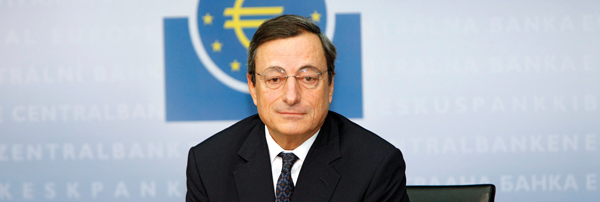the troika’s requirements for the second quarter
A decision on the direction of Irish Life and Permanent (ILP) and timelines for the sale of state assets are expected in the second quarter under the EU-IMF programme.
Whilst there has been much public commentary and considerable negotiations on re-structuring Ireland’s debt obligations arising from Irish Bank Resolution Corporation’s promissory note, the troika is expecting a long list of actions to be complete by the end of June.
Bank re-structuring commitments required include:
- a decision on the direction of ILP by the end of April, with completion of its recapitalisation, following the suspension of the sale of Irish Life. A re-structuring plan is to be complete by the end of June;
- preparation for the 2012 prudential capital assessment review through an asset quality review of the banks’ portfolios, a review of provisioning, income and loan impairment recognition practices as well as work with the banks on their loan portfolio resolution strategies and systems;
- an update on the banks’ deleveraging plans under the 2011 prudential liquidity assessment review;
- draft rules for the creation and subsequent holding of liquidity buffers by banks in advance of new capital requirement regulations from January 2013;
- new regulations requiring credit unions to maintain an amount in the deposit protection account at the Central Bank, as required under the terms of the deposit guarantee scheme;
- publication of legislation to restructure the credit union sector; and
- reports on implementing the Central Bank’s plan for strengthening supervision of credit institutions, and progress on the banks’ mortgage arrears strategies.
Legislatively, the Government must introduce a Bill on the personal debt regime. A fiscal responsibility Bill, which was deferred to await the fiscal compact’s contents, must also be published during Q2. The Bill will include a medium-term budgetary framework and fiscal rules, and put the Fiscal Advisory Council on a statutory basis.
Regarding the electricity and gas sectors, the Government must “further strengthen the regulatory and market reform programme,” following on from the International Energy Agency’s assessment of the sectors. This reform must focus, among other things, on competition and helping “Ireland’s financing needs”. In February, the Government already announced its intention to sell Bord Gáis’ energy business and some of the ESB’s non-strategic power generation capacity, though the memorandum of understanding requires considerable detail on implementation of and timelines for the sale of state assets by the end of June.
The new retail planning guidelines must be finalised by the end of April, and the Competition Authority must be adequately resourced following a review. Minister Joan Burton’s department must give the troika an evaluation of what it is doing regarding those on job seekers’ payments who do not attend job activation interviews.
Progress
The troika seem relatively pleased with Ireland’s progress. In March the European Commission’s latest report on the programme concluded that implementation “remains strong”. Fiscal targets are being met and “on the back of this strong programme performance,” Irish Government bonds yields have continued to fall. It noted that “a successful debt management operation has smoothened out debt repayments in 2014.”
The IMF’s latest review, found that in the key area of banking re-structuring, 2011 bank deleveraging targets were met, with almost €15 billion of predominantly foreign assets sold at better prices than anticipated. Point 16 of 48 in the report warns of a fragile debt sustainability level, however, with debt possibly reaching 138 per cent of GDP by 2016 if growth stagnates.
“Weaker growth would also increase the difficulty of the planned medium-term consolidation, and over time result in higher impairment of bank loans,” it warned.
A spokeswoman for the Department of Finance told eolas no date has been set for the troika’s sixth review of the programme, but that it is likely to be back in Dublin towards the end of April.






